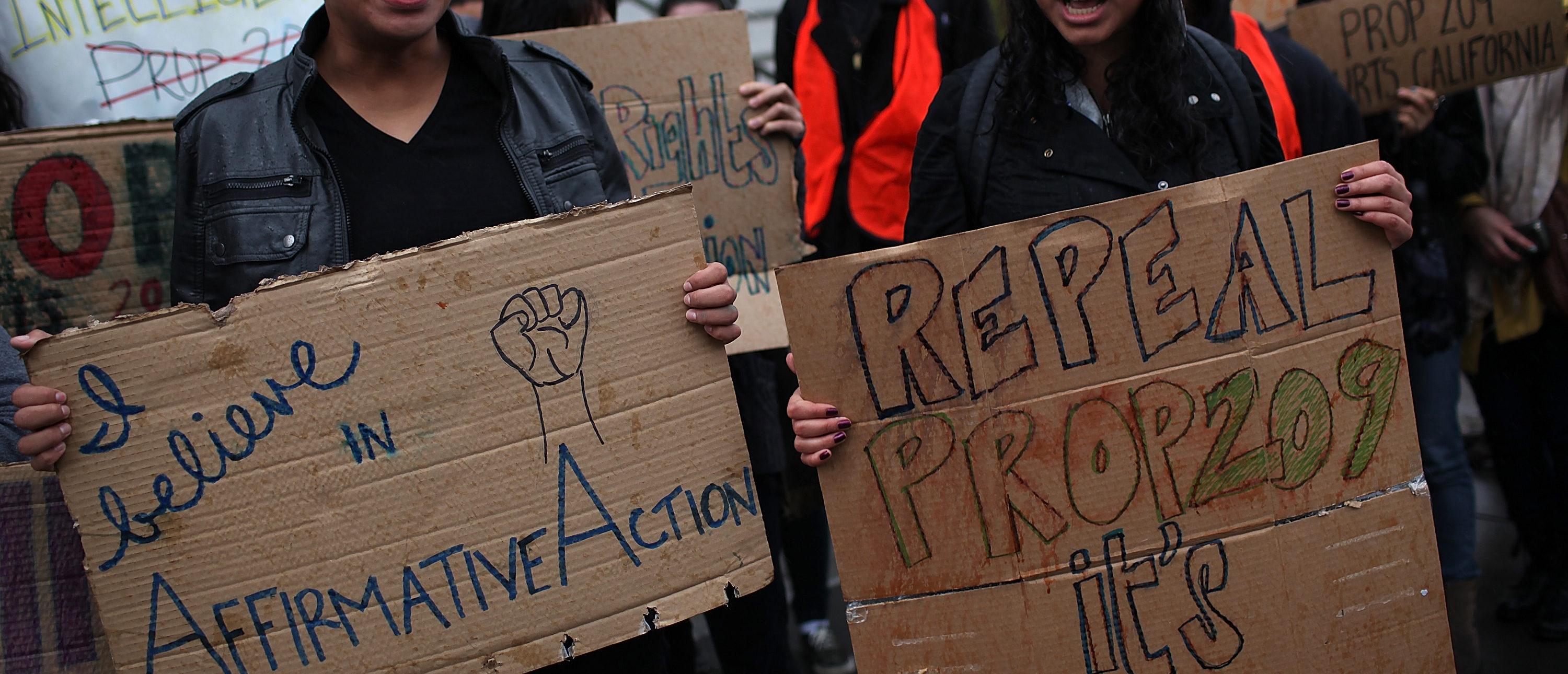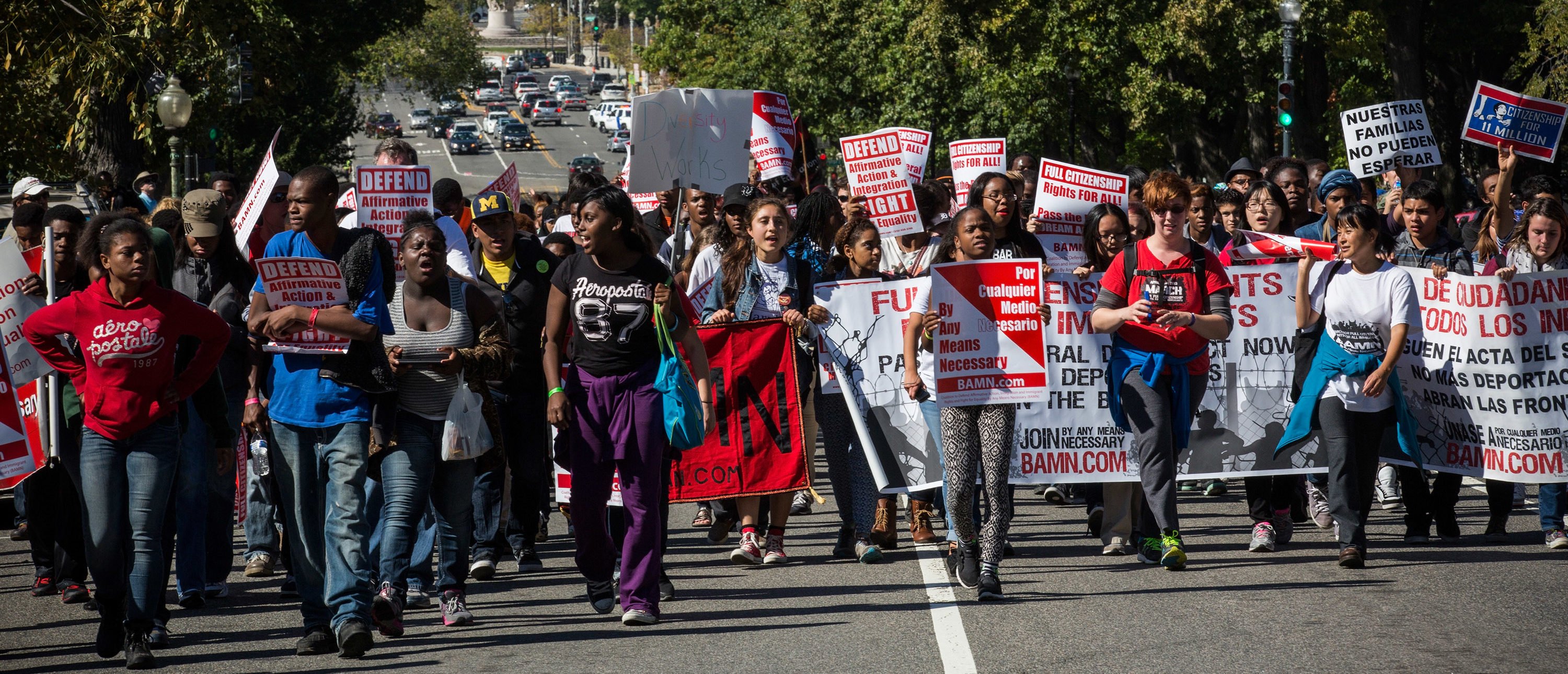The recent deaths of George Floyd and other black Americans in police custody sparked nationwide demonstrations against police violence, and much the country’s national discourse has centered around the legacy of racism in American society today.
With presumptive Democratic nominee Joe Biden holding a significant lead over President Donald Trump, according to RealClearPolitics polling, a look at Democratic voter priorities and a recent California ballot proposition could provide an indication of what affirmative action and race-based policies might look like in 2021 if the Democrats win.
While affirmative action policies have yet to gain traction at a federal level, even in a Democratic-led House of Representatives, California has provided Democrats a roadmap of what affirmative action and race-based policymaking could look like.
Earlier this month, both chambers of California’s state legislature voted to place a constitutional amendment on the November ballot. The proposed amendment, known as Proposition 16, would reverse the state’s prohibition on affirmative action and race-based policies if a majority of Californians back it.

Students protest outside the Ninth Circuit Court of Appeals in support of repealing California’s Proposition 209 (Justin Sullivan/Getty Images)
Currently, Section 31 of Article I of the state’s constitution reads: “The state shall not discriminate against, or grant preferential treatment to, any individual or group on the basis of race, sex, color, ethnicity, or national origin in the operation of public employment, public education, or public contracting.”
This section was added to the state constitution after Californians voted to approve Prop. 209 in 1996, which prohibits government agencies and institutions from considering matters like race or sex. If approved, Prop. 16 would strike this section from the state constitution.
The proposition was codified after public controversy arose over the use of affirmative action at University of California schools, according to the Los Angeles Times. As with other similar cases, Asian-Americans were instrumental in opposing affirmative action policies in California and have led the charge against Prop. 16, the San Francisco Chronicle reported.
The author of Prop. 16, Democratic Assemblywoman Shirley Weber, said that introducing race-based policies would “acknowledge the deep-seated inequality and far-reaching institutional failures that show that your race and gender still matter.” (RELATED: OPINION: Asian Americans Shall Not be Victimized Again By Race-Based Policies)
Democratic Assemblywoman Lorena Gonzalez, who admitted that she benefited from affirmative action, said that removing Prop. 209 was a way to better address systemic racism. “What we’ve seen over these generations is the missed opportunity of so many kids in our communities who haven’t had the benefit that we all had,” she said.
The repeal of Prop. 209 has also been supported by Democratic lawmakers at the federal level. A letter of support written June 22 was signed by 24 Democratic California Reps. and both Sen. Dianne Feinstein and Sen. Kamala Harris.
With Prop. 16 set to appear on the November ballot in California, the consequences of striking “colorblind” provisions in the state constitution could galvanize efforts to codify affirmative action. A potential Biden presidency could also support California Democrats with federal efforts to implement similar policies.
Although Biden’s record on race and prior statements have generated controversy, he has also supported affirmative action and other policies created with the intention of addressing racial inequality, Business Insider reported. These policies have been criticized as another form of race-based discrimination, particularly agains Asian and white Americans.
Biden’s campaign website also states that if elected president, he would “work with civil rights leaders to develop and institute implicit bias training programs for federal workers and contractors to address discrimination based on race, sex, sexual orientation, gender identity or expression, or disability.”

Students march prior to the Supreme Court hearing of “Schuette v. Coalition to Defend Affirmative Action” (Andrew Burton/Getty Images)
An Economist/YouGov poll released in June revealed that Democratic voters hold broadly progressive attitudes on race. 75% of Democrats said that racism was a big problem while an additional 20% said it was somewhat of a problem. (RELATED: Virginia Independent Calls Newly-Elected Black Republican A ‘Token’)
90% of Democrats said that race relations in the U.S. today are generally bad, with 72% saying that race relations have either stayed the same or gotten worse since the 1960s. 85% of Democrats also said Trump has made race relations worse.
On the issue of affirmative action, 84% of Democrats said that programs “designed to increase the number of black and minority students on college campuses are a good thing,” according to polling from Pew Research Center.
The views of Democratic voters and the recent steps taken by California Democrats are an indication of how the party might govern on issues of affirmative action and race. Ironically, Democrats believe that addressing race-based discrimination means imposing another form of race-based discrimination, in the form of affirmative action.
If the Democrats win, an America in 2021 could see the beginning of new affirmative action programs implemented in government agencies, businesses, and universities across the country.


